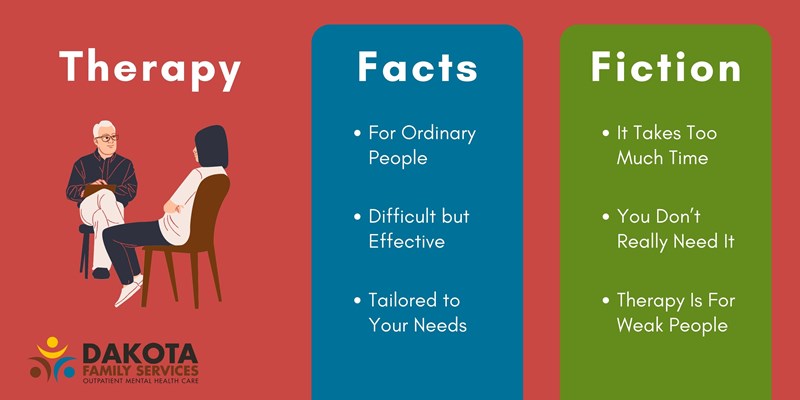Opening the Tricks of Mental Wellness: An Introduction of Counseling and Treatment Alternatives
Psychological health and wellness is a complex and essential aspect of overall well-being. Numerous therapy and therapy options exist to attend to numerous emotional obstacles. Each approach offers unique advantages and methods customized to specific needs. Understanding these alternatives is important for any person seeking to improve their mental health and wellness. Marriage Counselling. What factors should one think about when discovering these methods? The response may reveal a path to a healthier psychological state
Understanding Mental Health And Wellness and Its Significance
Psychological health includes the psychological, mental, and social well-being of people, significantly influencing just how they assume, feel, and act. Its significance can not be overemphasized, as it impacts every facet of life, consisting of partnerships, job performance, and total quality of life. Individuals with good psychological health have a tendency to handle tension better, maintain healthier relationships, and make educated choices. Alternatively, poor psychological health and wellness can cause emotional distress, impaired functioning, and various psychological problems, which might need professional intervention. Understanding psychological health and wellness is necessary for recognizing the indications of distress and the demand for support. Understanding also advertises empathy and reduces preconception, motivating individuals to look for assistance when essential. By prioritizing psychological health and wellness, areas can promote environments that support emotional wellness, ultimately bring about much healthier, extra resilient people. This structure functions as an essential action towards efficient psychological wellness counseling and treatment alternatives.
Sorts Of Therapy Methods
Therapy techniques vary extensively, each customized to fulfill the special demands of people seeking assistance. Amongst the most typical types are cognitive-behavioral therapy (CBT), which concentrates on determining and transforming adverse idea patterns, and person-centered therapy, which highlights compassion and acceptance. Psychodynamic therapy checks out subconscious procedures and previous experiences to recognize current habits, while solution-focused brief treatment intends to recognize solutions instead of check out problems.Additionally, household treatment addresses relational dynamics and interaction within households, promoting healthier communications. Team therapy gives a communal area for participants to share experiences and support each other. Other methods consist of existential therapy, which urges individuals to discover meaning and purpose, and art or songs therapy, which uses innovative expression as a healing tool. Each method supplies unique techniques and ideologies, permitting customers to discover one of the most ideal method for their personal growth and healing journeys.
Checking Out Various Treatment Modalities
In the domain name of psychological wellness therapy, different treatment modalities supply distinct strategies to therapy. Cognitive Behavioral Treatment emphasizes the link in between thoughts and actions, while Psychodynamic Therapy explores subconscious impacts on emotional wellness. Furthermore, Mindfulness-Based Methods promote present-moment understanding as a way to improve psychological law and overall mental health.
Cognitive Behavior Modification
Cognitive Behavior Modification (CBT) attracts attention as one of one of the most widely practiced and looked into techniques in mental health and wellness therapy. This technique focuses on the interconnection in between thoughts, habits, and sensations, emphasizing that altering adverse thought patterns can bring about enhanced psychological well-being and behavior modifications. CBT is structured, normally entailing a minimal variety of sessions, and intends to equip individuals with functional abilities to handle their signs and symptoms. It is efficient for a selection of problems, including anxiousness disorders, clinical depression, and trauma. By using methods such as cognitive restructuring and exposure therapy, CBT fosters resilience and equips customers to challenge difficulties head-on, making it an important choice in the landscape of psychological health therapies.
Psychodynamic Treatment Approaches
Psychodynamic treatment approaches supply a deep exploration of the unconscious mind and its influence on behavior and emotional well-being. Rooted in Freudian concept, these approaches emphasize the significance of early childhood experiences and subconscious disputes. Via strategies such as free association, dream evaluation, and transfer, individuals acquire understanding right into their sensations and thoughts, promoting self-awareness and understanding. This therapeutic technique urges customers to discover repressed feelings and unsettled issues, which can be essential in addressing present mental challenges. By checking out the interaction in between present actions and past experiences, psychodynamic treatment intends to promote emotional healing and personal development. Ultimately, it provides a structure for individuals to discover complicated inner characteristics that affect their mental health and wellness.

Mindfulness-Based Strategies
While typical treatments usually focus on past experiences, mindfulness-based methods prioritize present-moment awareness as a pathway to psychological wellness. These approaches, including mindfulness-based cognitive therapy (MBCT) and mindfulness-based anxiety decrease (MBSR), motivate individuals to engage fully with their ideas and feelings without judgment. Practitioners learn to observe their frame of minds, cultivating a higher understanding of psychological triggers and reactions. This practice not just eases signs and symptoms of anxiety and depression but additionally improves total psychological durability. By integrating mindfulness workouts, such as reflection and deep breathing, clients cultivate a sense of tranquility and clarity. Inevitably, mindfulness-based techniques empower people to browse life's obstacles with boosted recognition and acceptance, promoting a healthier partnership with their emotions and ideas.
The Duty of a Therapist or Counselor
A knowledgeable specialist or counselor plays a vital role in sustaining individuals with their psychological health and wellness trips. They offer a risk-free, non-judgmental room where customers can express their sensations and thoughts honestly. Couples Therapy. By utilizing various therapeutic techniques customized to every person's requirements, therapists assist customers check out underlying issues that might add to their psychological health challenges.Therapists supply guidance and tools to manage stress and anxiety, anxiousness, anxiety, and various other psychological problems. Their training furnishes them to acknowledge patterns in habits and assumed procedures, assisting in insights that bring about personal growth. They likewise cultivate a strong restorative partnership, which is vital for effective outcomes.Moreover, specialists continue to be fully commited to discretion and ethical requirements, ensuring a relying on setting. Inevitably, the function of a therapist or therapist is to empower individuals, encouraging them to establish resilience and much healthier coping techniques while guiding with life's complexities
How to Select the Right Therapy or Therapy Option
Selecting the best counseling or therapy alternative begins with assessing private needs. It is important to understand individual difficulties and objectives before discovering different treatment styles. This foundational action can substantially affect the performance of the chosen method.
Analyze Your Needs

Just how can individuals efficiently evaluate their mental health requires when examining therapy or therapy choices? Initially, they ought to mirror on their mood and determine specific issues, such as depression, partnership, or anxiety difficulties. Journaling can be a useful device for tracking thoughts and feelings with time. Furthermore, people might benefit from looking for feedback from relied on close friends or relative concerning viewed modifications in behavior or state of mind. It is also practical to assess individual goals for treatment, such as enhancing coping abilities or gaining understanding into personal patterns. Lastly, investigating various therapy methods and their suitability for specific demands can aid in making an educated choice. Ultimately, self-awareness plays a crucial function in selecting the appropriate course for mental health support.
Explore Therapy Styles
While traversing the diverse landscape of treatment alternatives, people should take into consideration numerous designs of counseling to locate the very best fit for their special needs. Cognitive Behavior Modification (CBT) concentrates on changing unfavorable idea patterns, while Psychodynamic Treatment explores subconscious processes and past experiences. Humanistic approaches highlight individual growth and self-actualization, promoting an encouraging setting. In addition, mindfulness-based treatments grow present-moment awareness, aiding psychological guideline. For those seeking framework, Solution-Focused Brief Therapy targets certain goals and remedies. Group treatment gives a common setting for common experiences and support. Inevitably, individuals ought to reflect on their preferences, comfort levels, and particular obstacles, guaranteeing they select a therapeutic style that reverberates with their individual journey towards psychological health.
Conquering Barriers to Looking For Aid

The Benefits of Counseling and Treatment for Mental Health
Seeking aid for psychological health and wellness difficulties can lead to substantial improvements in overall well-being. Therapy and therapy supply people with a safe space to discover their ideas and sensations, cultivating self-awareness and individual development. These specialist solutions outfit clients with coping methods and analytical skills customized to their unique situations.Moreover, treatment can reduce signs and symptoms of anxiousness, depression, and various other psychological health problems, improving psychological strength. Normal sessions advertise responsibility and motivate people to establish and accomplish personal objectives. With various therapeutic methods, such as cognitive-behavioral therapy or mindfulness practices, customers find out to reframe negative ideas and develop much healthier behaviors.Additionally, the therapeutic partnership itself can be a resource of support, assisting to battle seclusion and loneliness. Overall, participating in counseling and treatment is a proactive step toward accomplishing psychological health, making it possible for people to lead even more meeting lives.
Often Asked Concerns
The Length Of Time Does Therapy or Therapy Usually Last?
The duration of counseling or treatment varies substantially, often lasting from a couple of sessions to numerous months or years. Elements influencing this include the individual's certain needs, the go kind of therapy, and restorative goals.
What Should I Expect During My Very First Session?
During the very first session, people can anticipate an introduction, discussion of issues, and the therapist's technique. They might complete analyses and establish objectives, promoting a risk-free atmosphere for open interaction and structure relationship.

Are There Any Kind Of Dangers Connected With Treatment?
Treatment can entail threats, such as emotional discomfort, susceptability, or confronting agonizing memories. While these difficulties might emerge, they can additionally cause personal growth and recovery, making the healing process complicated yet possibly fulfilling.
How Can I Inform if My Therapist Is an Excellent Fit?
Figuring out if a therapist is an excellent fit entails reviewing comfort, communication design, and therapeutic method. Favorable rapport and development towards goals are indications of an ideal suit, important for efficient mental wellness support.
Will My Insurance Cover Counseling or Therapy Procedure?
Figuring out insurance policy protection for counseling or treatment sessions usually needs contacting the insurance provider directly. Plans vary significantly, so individuals need to validate advantages, co-pays, and any required pre-approvals prior to going after treatment solutions. Amongst the most typical kinds are cognitive-behavioral therapy (CBT), which concentrates on recognizing and altering adverse idea patterns, and person-centered treatment, which stresses compassion and acceptance. Psychodynamic treatment explores unconscious procedures and previous experiences informative post to understand present habits, while solution-focused quick treatment aims to recognize solutions rather than explore problems.Additionally, family therapy addresses relational characteristics and interaction within families, promoting much healthier interactions. Various other techniques include existential treatment, which urges people to locate definition and objective, and art or music treatment, which uses creative expression as a healing tool. Cognitive Behavior Treatment highlights the link in between behaviors and ideas, while Psychodynamic Therapy explores subconscious impacts on psychological health. Cognitive Behavioral Treatment (CBT) focuses on changing negative idea patterns, while Psychodynamic Treatment checks out previous experiences and subconscious processes.